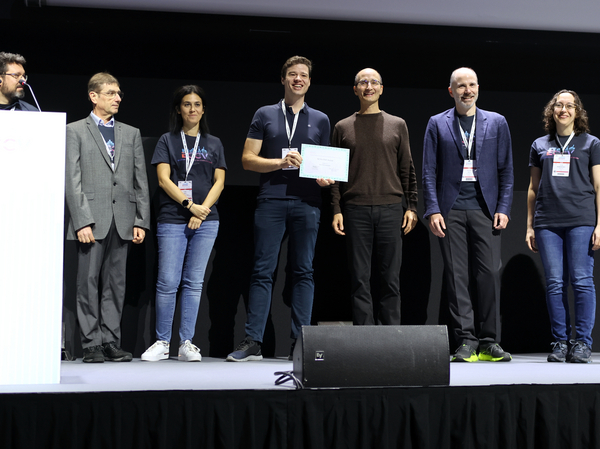Jan Eric Lenssen, head of the research group “Geometric Representation Learning” at the Saarbrücken Max Planck Institute for Informatics, has been awarded the 2024 Dissertation Award by the European Computer Vision Association (ECVA). This prize is among the most prestigious awards for dissertations in the computer vision community. The award honors Lenssen’s contributions in the fields of “Geometric Deep Learning,” “Graph Neural Networks,” and “3D Representation Learning.”
Lenssen completed his doctoral thesis, titled “Differentiable Algorithms with Data-driven Parameterization in 3D Vision,” in 2022 at the Chair of Computer Graphics in the Faculty of Computer Science at TU Dortmund, under the supervision of former chair holder Prof. Dr. Heinrich Müller. His work focuses designing and analyzing efficient differentiable data flows for representations in the field of 3D vision and applying it to different 3D vision tasks.
In the ECVA’s award citation, it states: “In his PhD work, Jan Eric Lenssen made a large number of very original, technically deep, and significant contributions in the area of geometric deep learning, graph neural networks, and 3D representation learning. His contributions to efficient GPU message passing algorithms laid the foundation for Pytorch Geometric, the most used graph neural network library world-wide, and for the successful startup Kumo.ai.” The prize was presented at the 2024 edition of the “European Conference on Computer Vision (ECCV),” one of the world’s leading conferences in this area of computer science.
Since 2023, Jan Eric Lenssen has been leading the research group “Geometric Representation Learning” in the department “Computer Vision and Machine Learning,” headed by Director Professor Bernt Schiele at the Saarbrücken Max Planck Institute for Informatics. Additionally, he is a faculty member of the Saarbrücken ELLIS Unit “SAM” and has been part of the “Saarland University Associate Fellowships” program since 2024.
Currently, his research focuses on how machine learning methods can learn and reason on spatial structures such as images, videos, and three-dimensional representations. In particular, he is working on current generative models and their efficient implementation.
Further Information:
https://geometric-rl.mpi-inf.mpg.de/
Editor:
Philipp Zapf-Schramm
Max Planck Institute for Informatics
Tel: +49 681 9325 4509
E-mail: pzs@mpi-inf.mpg.de

